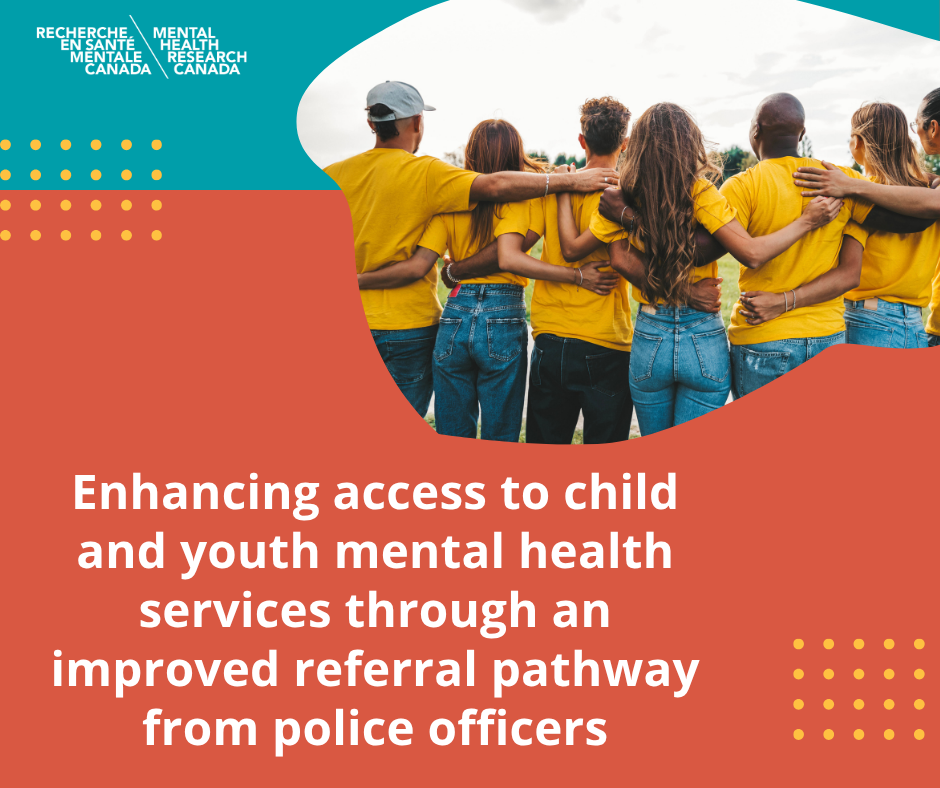Enhancing access to child and youth mental health services through an improved referral pathway from police officers
Ron Hoffman, Tina Benevides & Roxana Vernescu
The researchers aimed to improve interactions between police officers and children and youth with mental health issues and/or crises. The primary objective was to increase police officers' awareness and skills in identifying common mental health conditions in children and youth through enhanced training. The secondary objective of this project was to develop varied tools and resources for front-line police officers and crisis intervention teams to help them with child and youth mental health crises guidelines and a decision-support and crisis management software (HealthIM).
Methodology
The study recruited 253 participants who had contact with the police and they used two sets of measurements before and after they used the software. This helped the researchers determine if police officers' thoughts and feelings about children and youth’s mental health improved. During the study, questionnaires were also sent to participants to understand any mental health issues they were experiencing and to measure their overall mental well-being. At the conclusion of the study, frontline police officers and employees of mental health agencies were questioned on their confidence and ability of identifying mental illness in children and youth.
Findings
The study found that the proportion of police officers who had increased awareness and had improved abilities to identify mental health challenges and “abnormal thought processes” in children/youth increased from 23.5% to 58.8% of the total participants.
Through this study, many police officers and employees of mental health agencies were able to improve their working relationships with emergency department staff.
Officers reported increased confidence in their ability to support children/youth with mental health issues, leading to a higher percentage of referrals to community mental health agencies for children/youth compared to adults.
Lastly, the project also highlighted the need for how mental health crises should be handled. As a result, a major finding was to develop better responses to crises through better systems and increased interagency collaboration.
Project Outreach
In Ontario, this project trained 50 police officers to handle youth mental health issues and created software for better referrals to mental health services. Officers improved at recognizing these challenges, leading to more referrals. It gained national attention through a CBC article and remained within Ontario without expansion.
Resources Created
4 presentations
Publications in progress

